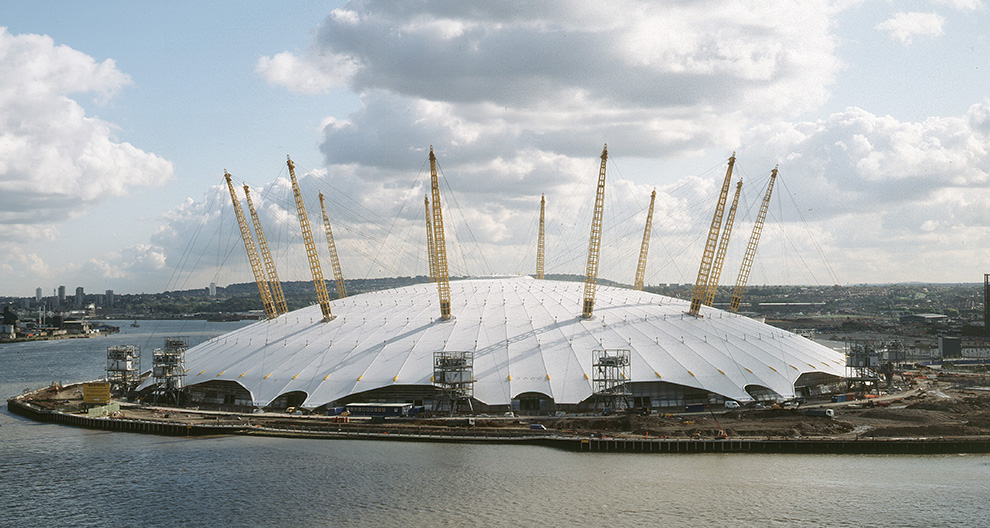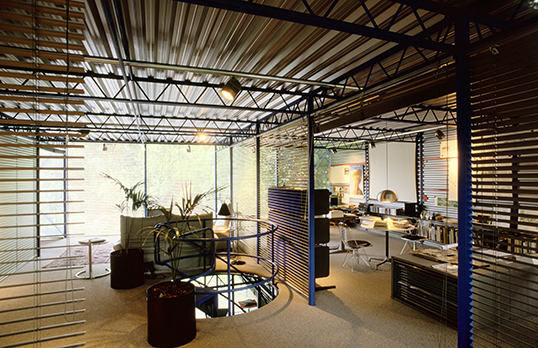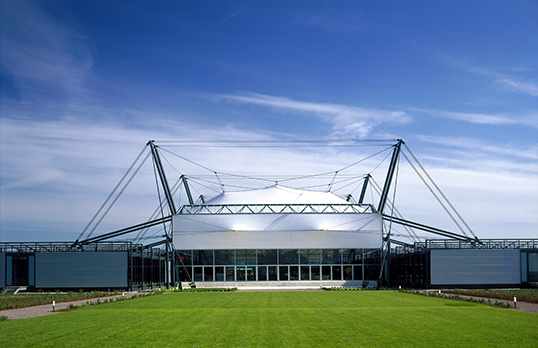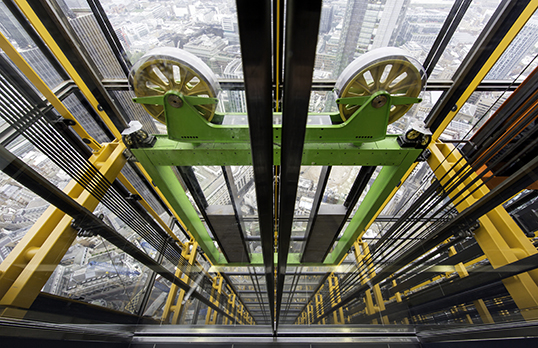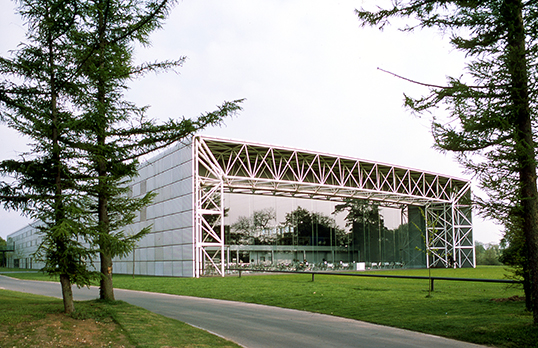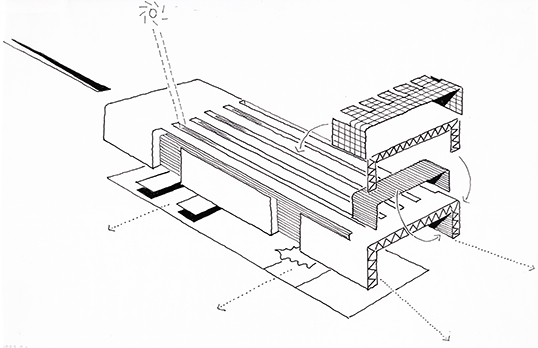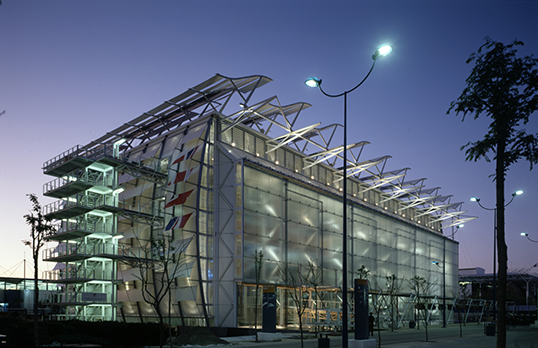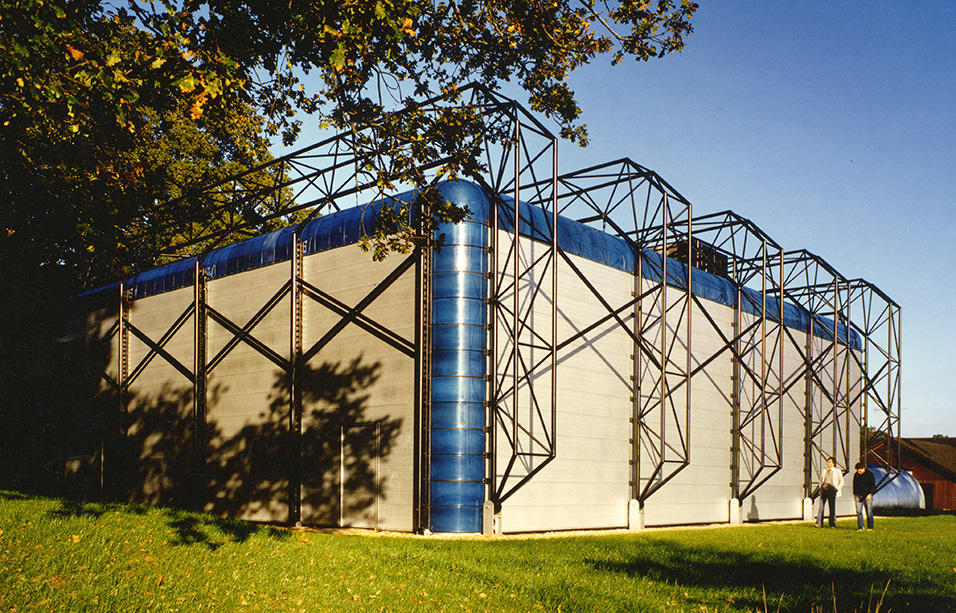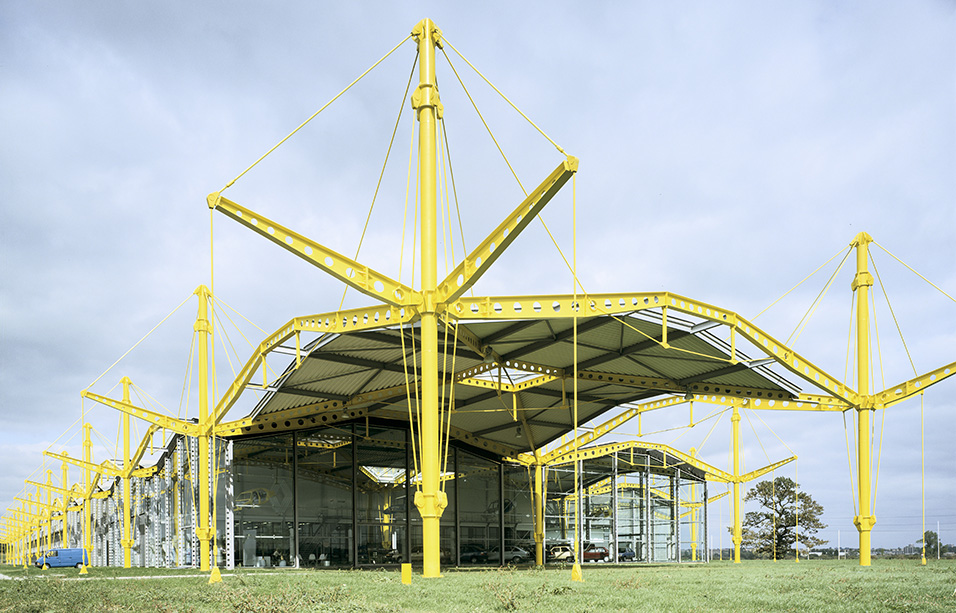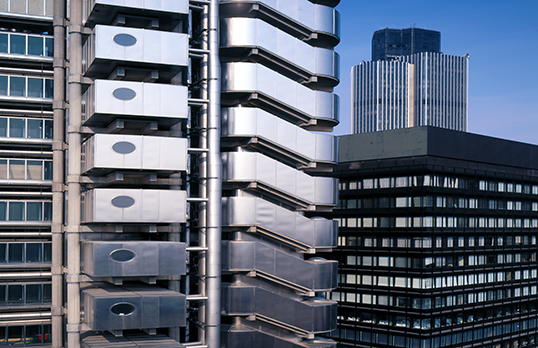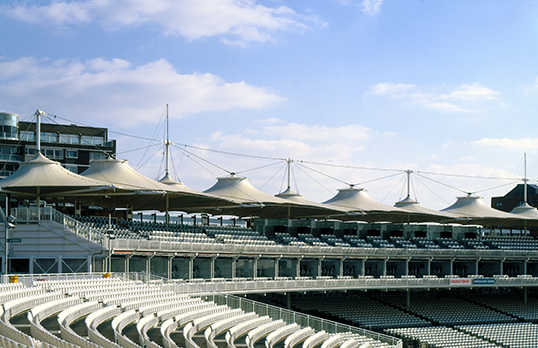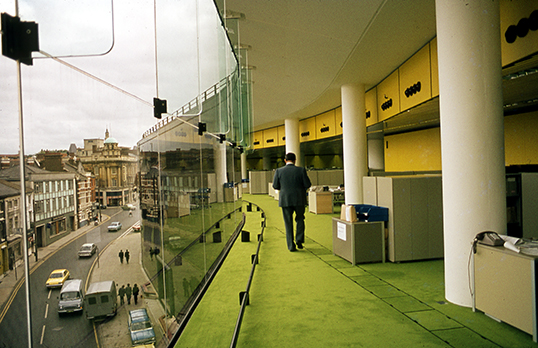Influenced by engineering and new technology, High Tech is a style that accentuates a building’s construction.
High Tech was a development in British Modernist architecture from the late 1960s. It was a concept of design, based on engineering, construction and other aspects, such as the manipulation of space. High Tech was marked by a preference for lightweight materials and sheer surfaces, a readiness to adopt new techniques from engineering and other technologies, and the celebratory display of a building’s construction and services.
Norman Foster and Richard Rogers were the key architects who brought about these changes and implemented them from the 1970s. High Tech buildings are characterised by exposed structures (usually of steel and or other metals), with services (pipes, air ducts, lifts etc.) often picked out in bright colours, a smooth, impervious skin (often of glass) and a flexibility to create internal service zones, rather than rooms or sequences of rooms.

